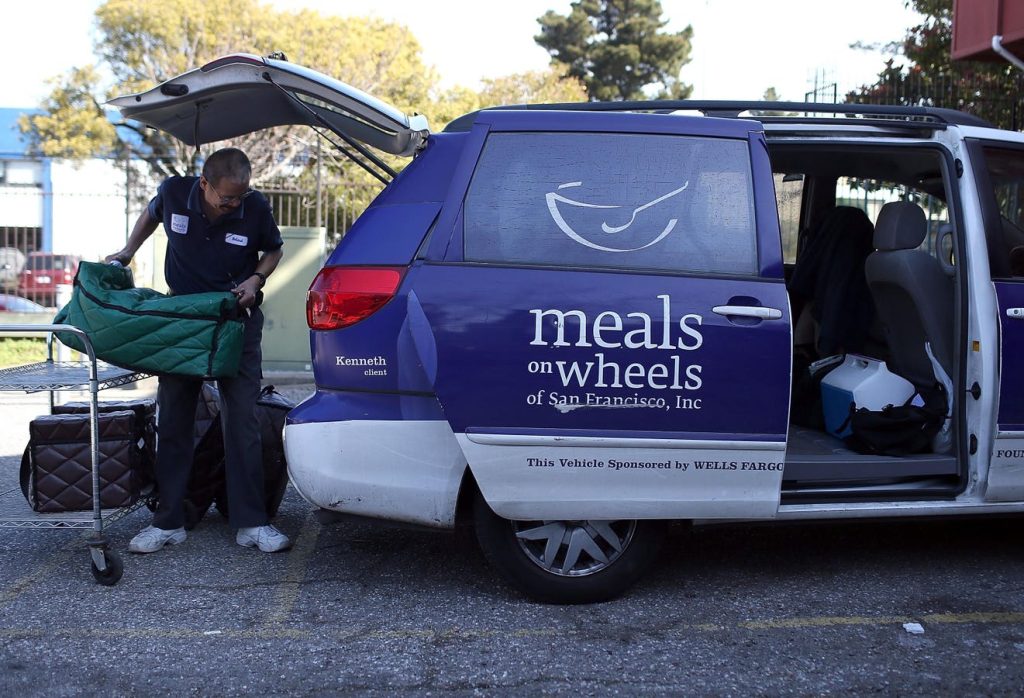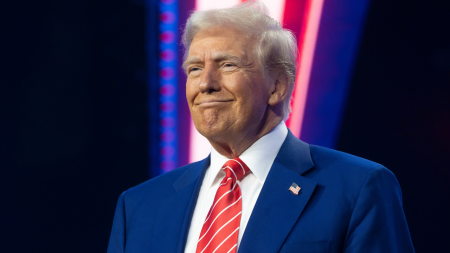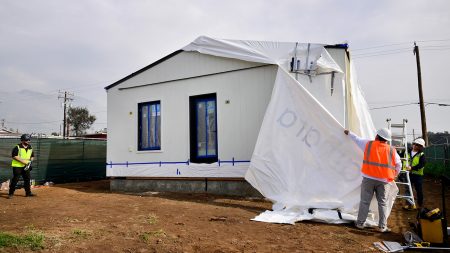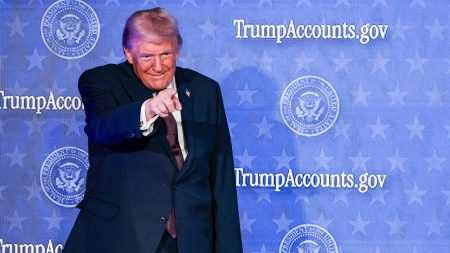The Older Americans Act, the umbrella federal law that includes programs such as Meals on Wheels, senior transportation, information services, adult day, and caregiver support was hours from being expanded and winning congressional approval for another five years. Now, its fate has become far more uncertain.
Its all because the OAA, despite broad bipartisan congressional support, got caught up in a squabble over an emergency end-of-year spending bill between President-elect Trump and Elon Musk on one hand, and Capitol Hill Republican leaders on the other. The result: House Speaker Mike Johnson (R-LA) dropped the OAA from the big budget measure. Now, the OAA’s future funding is at risk and its fate likely will remain undecided until at least next Spring.
While OAA programs will continue to be funded at current levels until March, it has become a potential target for substantial spending reductions. Musk and Vivek Ramaswamy, who run an unofficial Trump-backed effort they call the Department of Government Efficiency (DOGE), say they’d try to kill programs like the OAA, which currently are not formally authorized by Congress.
Into The Weeds
To understand what is happening, let’s take a short trip through the legislative weeds.
At least on paper, federal programs like the OAA operate in two steps. They first must be authorized by Congress, something that, in the OAA’s case, is supposed to happen every five years. Then, once a federal program is authorized, Congress appropriates money each year to fund its operations. The OAA has been running like this for nearly 60 years.
In reality, many programs continue for years without Congress extending their authorization. But in today’s political environment, doing so makes them especially vulnerable. Even before DOGE came on the scene, congressional Republicans called them “zombie programs.”
Although the OAA’s authorization has expired, the Senate voted unanimously in mid-December to re-up the program and even increase its funding by about 20%. But the House failed to follow suit. It was all supposed to be taken care of in the omnibus budget bill, until Trump and Musk stepped in and sunk the entire measure. Now the OAA’s authorization process has to start all over again.
Targets For Cuts
In a recent Wall Street Journal column, Musk and Ramaswamy wrote, “DOGE will help end federal overspending by taking aim at the $500 billion plus in annual federal expenditures that are unauthorized by Congress.”
The OAA is one of about two dozen federal programs operating without formal authorization. And that puts it in the DOGE bullseye.
In reality, OAA has plenty of friends in Congress. For example, Rep. Elise Stefanik (R-NY), who is one of Donald Trump most vociferous congressional allies, has introduced a bill to reauthorize the OAA. And many of the programs inside the law, such as Meals on Wheels, are enormously popular in Congress. But they also are chronically underfunded.
The Risks
It is unlikely that Congress would kill programs such as Meals on Wheels, anti-elder abuse initiatives, and the like if it voted on them individually.
But it could, as part of some 2025 budget agreement, impose across-the-board budget cuts of, say, 5%, on all domestic programs including OAA. Many congressional Republicans are demanding major reductions in federal spending, either on their own or to help pay for what are likely to be trillions of dollars of tax cuts.
At best, this mess could put the proposed OAA funding increase at risk. At worst, lawmakers could take Musk and Ramaswamy’s advice and slash spending even more deeply, at least until Congress reauthorizes OAA. Or, lawmakers could eliminate the jobs of the federal staffers who must manage each of its programs.
The Orwellian Paradox
As with much about the incoming administration, there is great uncertainty about all of this. Congress could vote to reauthorize the OAA soon after it returns next year, easing much of the political pressures it faces. The Musk and Ramaswamy effort could fade away, as many past government efficiency efforts have. Trump himself could lose interest in spending reductions, as he did in his first term.
For now, the OAA and its vital programs are caught up in an Orwellian paradox. The incoming Trump administration may target the OAA for cuts because Congress has not reauthorized it. Yet Congress failed to reauthorize the OAA because Trump sank the very bill that would have done so.
Make no mistake, critical Older Americans Act programs are now in some jeopardy. And so are the older adults who rely on them.
Read the full article here















